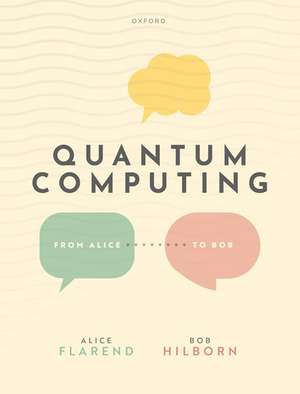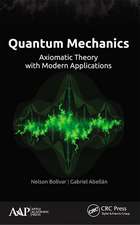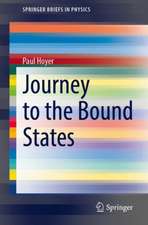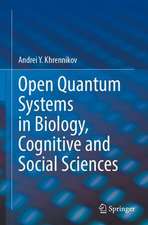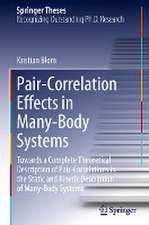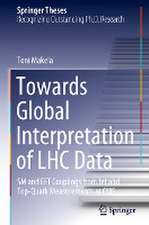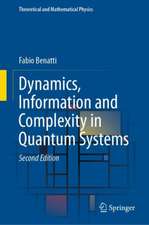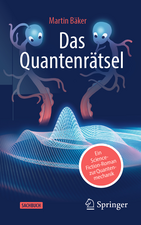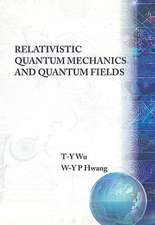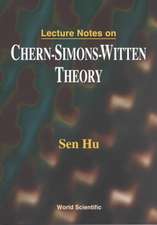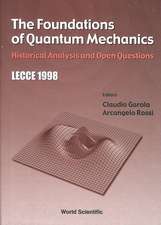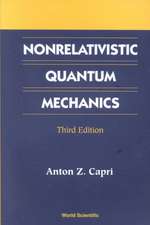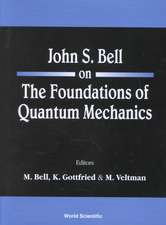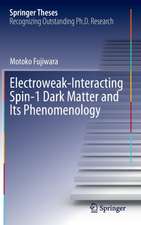Quantum Computing: From Alice to Bob
Autor Alice Flarend, Robert Hilbornen Limba Engleză Hardback – 15 apr 2022
| Toate formatele și edițiile | Preț | Express |
|---|---|---|
| Paperback (1) | 256.78 lei 31-37 zile | +57.61 lei 7-11 zile |
| OUP OXFORD – 15 apr 2022 | 256.78 lei 31-37 zile | +57.61 lei 7-11 zile |
| Hardback (1) | 451.22 lei 10-16 zile | +91.99 lei 7-11 zile |
| OUP OXFORD – 15 apr 2022 | 451.22 lei 10-16 zile | +91.99 lei 7-11 zile |
Preț: 451.22 lei
Preț vechi: 549.99 lei
-18% Nou
Puncte Express: 677
Preț estimativ în valută:
86.34€ • 90.15$ • 71.30£
86.34€ • 90.15$ • 71.30£
Carte disponibilă
Livrare economică 14-20 martie
Livrare express 11-15 martie pentru 101.98 lei
Preluare comenzi: 021 569.72.76
Specificații
ISBN-13: 9780192857972
ISBN-10: 0192857975
Pagini: 336
Ilustrații: 109 line drawings and colour images
Dimensiuni: 195 x 253 x 23 mm
Greutate: 0.92 kg
Editura: OUP OXFORD
Colecția OUP Oxford
Locul publicării:Oxford, United Kingdom
ISBN-10: 0192857975
Pagini: 336
Ilustrații: 109 line drawings and colour images
Dimensiuni: 195 x 253 x 23 mm
Greutate: 0.92 kg
Editura: OUP OXFORD
Colecția OUP Oxford
Locul publicării:Oxford, United Kingdom
Recenzii
While broadly accessible, the textbook does not dodge providing a solid conceptual and formal understanding of quantum states and entanglement - the key ingredients in quantum computing. The authors dish up a hearty meal for the readers, disentangling and explaining many of the classic quantum algorithms that demonstrate how and when QC has an advantage over classical computers. The book is spiced with Try Its, brief exercises that engage the readers in problem solving (both with and without mathematics) and help them digest the many counter-intuitive quantum information science and quantum computing concepts.
This is a refreshing, pedagogical, and timely overview of quantum computing for non-experts, by two well-qualified authors.
This is a much needed bridge between popular and technical texts that provides easy access to the topic of quantum computing for curious readers who aim to go further and deeper in their understanding.
The reader gets to avoid the complexity of technical quantum-computing books, yet gets more depth and rigor than in the popular writing on the topic...the book is written in a very conversational rather than academic tone.
This is a refreshing, pedagogical, and timely overview of quantum computing for non-experts, by two well-qualified authors.
This is a much needed bridge between popular and technical texts that provides easy access to the topic of quantum computing for curious readers who aim to go further and deeper in their understanding.
The reader gets to avoid the complexity of technical quantum-computing books, yet gets more depth and rigor than in the popular writing on the topic...the book is written in a very conversational rather than academic tone.
Notă biografică
Dr Flarend, a former nuclear engineer, earned a Ph.D in curriculum and instruction from the Pennsylvania State University and has been a high school physics teacher for more than 20 years. Her research interests include how learners develop their understanding of our solar system, teachers' views on including climate science in core science courses, and how teachers learn new content and pedagogy. Dr. Flarend has over a decade of experience providing teacher professional development in physics including classical, nuclear, and quantum physics.Dr Hilborn received his Ph.D. in physics from Harvard in 1971. He served as a physics faculty member at Oberlin, Amherst, the University of Nebraska-Lincoln, and the University of Texas at Dallas. He has had many decades experience doing quantum physics research in atomic, molecular, and optical physics and teaching quantum mechanics to undergraduate students. He is author of Chaos and Nonlinear Dynamics: An Introduction for Scientists and Engineers (OUP 1994, 2000). He is currently the Associate Executive Officer of the American Association of Physics Teachers and principal investigator for several nation-wide physics education projects funded by the National Science Foundation.
